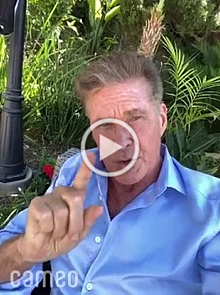Over the last few years, many thought leaders have written about “authenticity” and “bringing your whole self to work.” At first, most people argued for “bringing your whole self to work,” but now many criticize the idea. Should you bring your authentic self to work? Who is that person anyway?
For example, Marc Effron from the Talent Strategy Group wrote an article called “Why the Fake You Will Outperform the Authentic You,” arguing that “chameleons” who adapt to their surroundings are better off than employees who are genuine. You’ve probably heard similar arguments on LinkedIn, Twitter, and popular magazines.
However, this conversation misses the point entirely.
Vadim Liberman is known as the Liberace of HR. He’s also the editor and conference programmer for ERE, and former agent of The Starr Conspiracy. Last year, he gave a DisruptHR talk titled “The Myth of Authenticity,” about which he used to inspidly regale us on the finer points of being yourself. In the talk he argued that many businesses are led by “authentic assholes” half the time, and employees hate them. “It’s not about being your real self,” he says. “It’s about being your best self.”
Thought leaders have, in fact, argued over this question for thousands of years. It’s nothing new. Thinkers like Plato, Augustine, Machiavelli, and Nietzsche, along with every major religion, have returned again and again to the question, “What is the best self?” They phrased it differently — in terms of virtue, or the good life, or moral dilemmas — but the question remains.
However, the real question isn’t whether you should “fake” who you are, but whether who you are is good enough to be authentically known, even if you openly dislike office birthday parties or admit failure in your job.
Yes, you do act differently around your boss than your spouse. You’re being professional at work, and that’s good. Linguists call this “code switching,” where speakers match the dialect or vocabulary of their audience. We all do that. But at what point are you code switching your actual personality, presenting a shell of who you really are?
An organization full of chameleons will never last in the long run. It breeds a culture of duplicity and disingenuous co-workers. That’s why the office birthday party is the butt end of a thousand sitcom jokes: No one wants to be there, but no one’s willing to put in the effort to build an authentic culture, so people stand around exchanging pleasantries while looking down at their watches.
They’re just faking it.
Do you want to be known, warts and all? Deeper still: Will others accept who you are, with all your flaws and all your fears? Because that’s the thing — this isn’t about fakery, it’s about fear.
If you’re just an “adaptable chameleon,” you’ll simply fade into the background where no one knows who you really are. The truth is we’re all afraid of being truly known by others, if we’ll say or do the right thing under pressure, or if we’ll be exposed as mere “imposters.” Besides, faking a smile at work leads to heavy drinking, and we already got that covered, thanks.
Most people aren’t afraid of performing well on the job so much as they’re afraid they’re not good enough to even have the job in the first place. We can accept that we didn’t do a job well, but the thought that we’re not good enough as human beings is far scarier.
One of our top values at the agency is to live into this statement: “This is who I really am.” “You don’t have to worry about whether you’re getting the real me,” our brand guide states. “This is the only me.”
So, in an effort to know and to be known, we’re launching a new project. It’s called the Studio, a platform on which you’ll see videos, podcasts, commentary, news, and analysis from us on the work technology market, branding, digital media, software development, human life, and much more.
Even David Hasselhoff gave us some encouragement that one team can make a difference.
“You can make a difference.”
—David Hasselhoff
With the Studio, you’ll get to see us in all our glory — our fears, our flaws, and our fridge full of beer. We want to know ourselves and our clients more authentically. This is where we let our freak flags fly.
Welcome to the Studio. Let’s get to know each other.


